How to fertilize raspberries correctly in spring and autumn?
For better development and growth of raspberries, to increase yields, it is important to properly fertilize the soil. Feeding a plant in spring and autumn is different, so you need to choose the right fertilizers. A few helpful tips will help you cope with this task.
Raspberries bear fruit well in soils rich in beneficial chemicals. To create suitable conditions for the shrub, you need to choose fertilizer for raspberries. Seasonal feeding of the plant will help to get a decent one. This will require organic and mineral fertilizers, as well as knowledge of the basic rules and nuances.
When is it time to fertilize raspberries?
The appearance of a shrub can tell about which chemical elements it needs at the moment and which ones are in excess. You don't need to be an experienced gardener to identify a problem. Having carefully examined the leaves and shoots of raspberries, you can correct the situation in a timely manner, normalize the development and growth of the shrub, and increase its yield. What signs should you focus on?
- Weak, thin shoots and small foliage signal a lack of phosphorus;
- the presence of a yellow leaf with green veins indicates an iron deficiency;
- poorly growing, quickly yellowing from the middle to the edges of the leaves are the cause of a lack of magnesium;
- small yellow foliage that has stopped growing is a sign of a lack of nitrogen;
- if the bush is covered with brown, as if burnt from the edges, leaves - the plant lacks potassium (with a lack of it, raspberries can hardly endure the winter);
- dark color of leaves, rapid growth of shoots indicate an excessive amount of nitrogen in the soil, which threatens with a decrease in productivity and premature shedding of berries.
Useful tips: fertilization is necessary every year: in spring and autumn: only in this case you are guaranteed a reward in the form of a large harvest of large and aromatic berries. If raspberries grow on clay soil, the amount of fertilizer introduced should exceed the norm by 1.5 times. The sandy soil under the bushes needs to be fed more often.
How to fertilize raspberries in the spring?
Before feeding the shrub in the spring, preparatory work must be done. The lower shoots should be cut off. It is necessary to pull out the weeds with your hands and carefully (up to 10 cm in depth) loosen the topsoil. In this case, you need to act carefully so as not to damage the roots.
For feeding raspberries in the spring, mineral fertilizers are suitable. A positive effect on shoot growth and yield is exerted by:
- superphosphate is a nitrogen-phosphorus fertilizer, which, in addition to basic substances, also contains a lot of elements useful for the plant: potassium, magnesium, sulfur, etc. Under the action of superphosphate, the yield of raspberries is significantly increased, its general development is accelerated, the plant's resistance to many diseases increases;
- potassium salt is very nutritious for raspberries. It can be successfully replaced with ordinary wood ash, which, in addition, does not contain chlorine, which has a negative effect on shrubs. Can be fed with both diluted and dry ash;
- nitrogen fertilizers (ammonium nitrate and urea).
Fertilization of raspberries with minerals can be carried out in a complex. A good effect is given by a combination of 60 g of superphosphate, 40 g of potassium salt (or wood ash) and 30 g of ammonium nitrate. All components must be stirred in a bucket of water and added to the soil in 1-2 doses (it is better to feed the second time in early summer). In the spring, you can feed raspberries and a mixture of mineral fertilizers with organic ones. To do this, per 1 square meter of raspberries, you need to prepare a mixture of 3 g of potassium salt, 3 g of nitrogen, 2 phosphorus and 1.4 kg of manure.
What and how to fertilize raspberries in the fall?
Feeding raspberries in the autumn is no less important. During intensive growth and fruiting, the shrub consumes a significant amount of nutrients. Their lack contributes to the deterioration of plant development and a decrease in yield in the next year. Before feeding, you must carefully loosen the soil and remove all weeds with your hands.
For feeding raspberries in autumn, use organic fertilizers... They contain many of the trace elements necessary for the plant. Organic fertilizers are well absorbed by shrubs and have a positive effect on yields. The most effective fertilizers are:
- rotted manure... It will give strength to the plant during spring growth, and in severe frosts it will effectively warm its roots. Manure should be used at the rate of 6 kg per 1 square meter of soil;
- rotted compost. This fertilizer is as effective as manure. It not only saturates the soil with valuable elements, but also disinfects it. Good compost is obtained from weeds from the garden, foliage, vegetable waste;
- peat. It contains a small percentage of nutrients, but significantly improves the structure of the soil;
- bird droppings (preferably chicken). It should be used in a liquid state, evenly spreading over the required area of the raspberry tree.
How to calculate the fertilizer dose? Look at the quality of the crop and the appearance of the bush. If the plant has sufficiently thick shoots 2 m high, and the number of berries harvested reaches 1.5 kg, this means that the feeding has been done correctly. With a low yield, poor condition of the shoots, fertilizers should be applied in increased volumes and should be done more often.
Providing the plant in the spring and autumn periods with the necessary amount of useful elements, you will get a large harvest of the largest, sweetest berries!
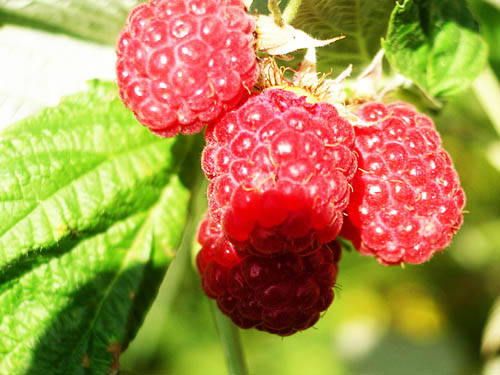
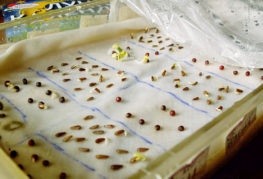
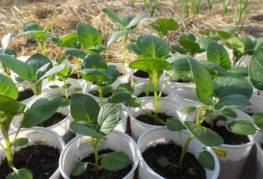
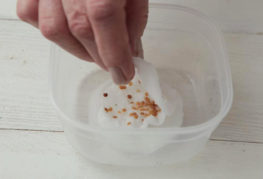
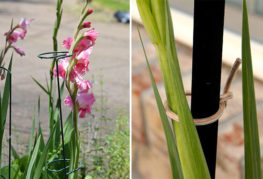
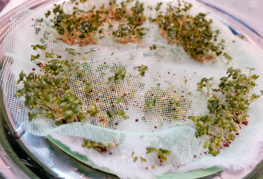
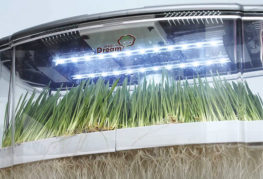
I always have a lot of problems with raspberries. Now I don't fertilize it at all - it grows excellent, the maximum - I can throw compost in the fall. Only there are a lot of worms on the berries, here's how to deal with them so as not to spoil the raspberries? They eat so many berries, it's scary even to think. I will try some tips from the article, I want to get even more raspberries on the trail. year. And while I was reading the article, I just felt the smell of raspberries!
Potash fertilizers in any composition are very suitable for berry bushes, I myself use potassium-magnesia, and I also add diluted chicken manure. And besides, I collect the eggshells, grind them in a blender and also feed them, it turns out with pure calcium, namely raspberries. But for these efforts, every year I get an excellent berry with an intoxicating aroma and a huge size.
EGOR, HOW DO YOU CARRY INTO RASPBERRY SHELLS FROM EGGS ???
Good afternoon, this is the question that has arisen, in the spring the raspberries were not fertilized, and now the leaves are turning yellow. Do you need to fertilize in the summer or it won't help and can you wait until autumn? From your article, I realized that the shrub lacks iron.
Of course you can, and even need to fertilize now, since you noticed that the raspberries are not in their best condition! Do, as the article says, "60 g of superphosphate, 40 g of potassium salt (or wood ash) and 30 g of ammonium nitrate", and next time in the spring, do not forget about fertilization :)
Thanks for the article, everything is in great detail, it turns out I didn't know a lot about caring for raspberries! I will try your advice in practice.
There is only one problem, an ubiquitous infection. I want to bury slate around the perimeter. Maybe it will not climb the ridges like that.
thank you very much for the tips on feeding raspberries
How to build up the root mass ??????